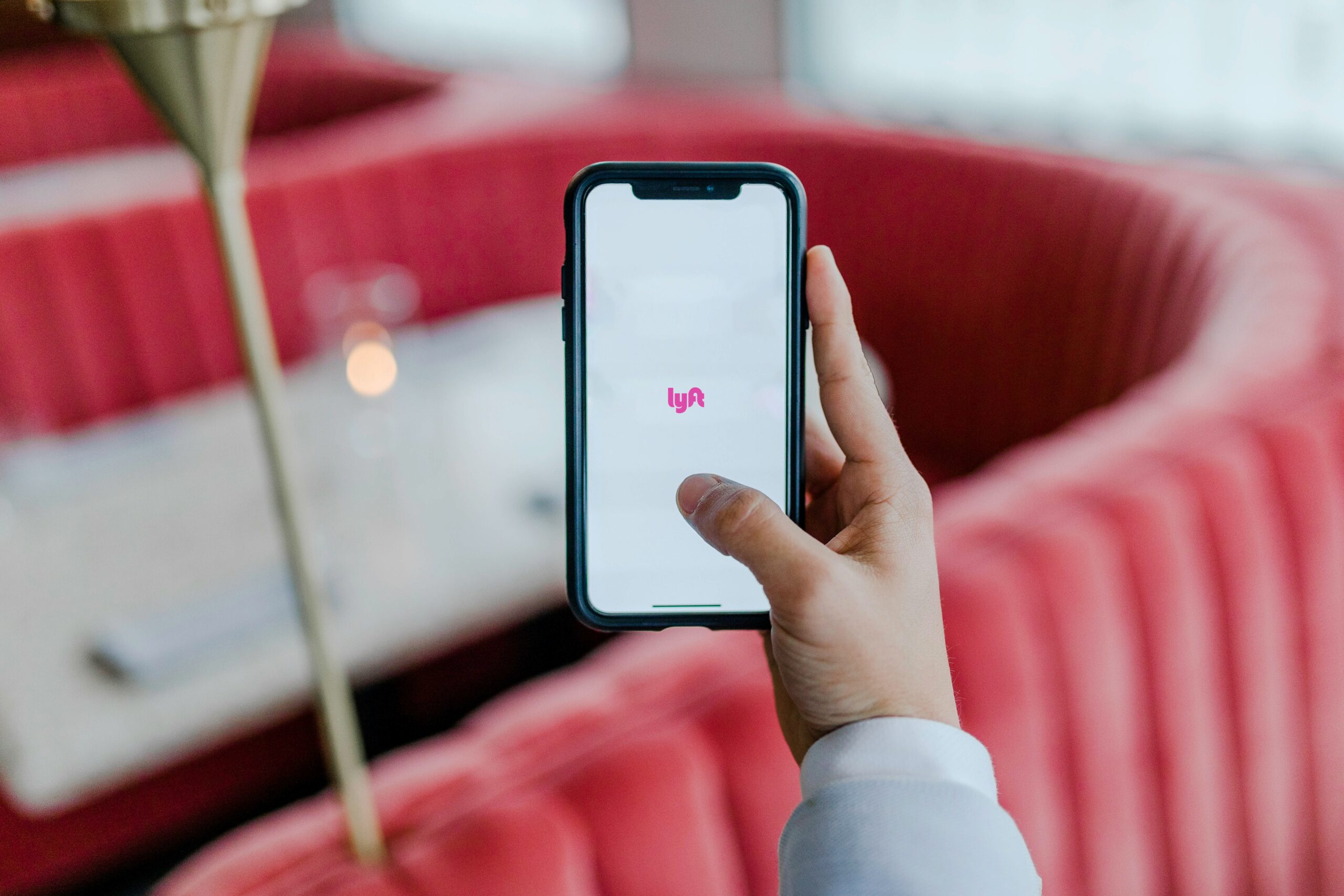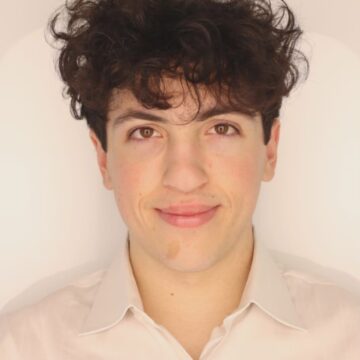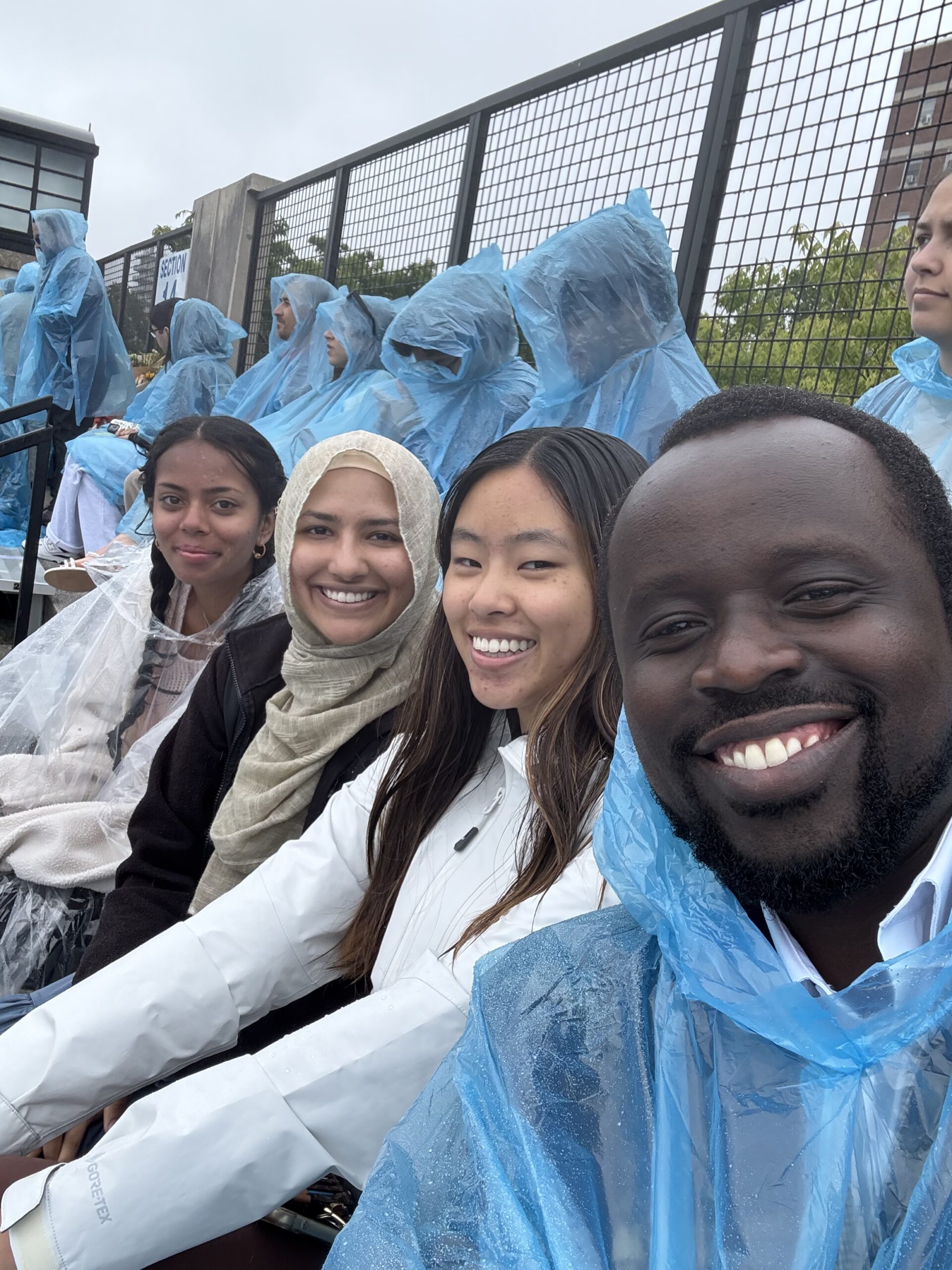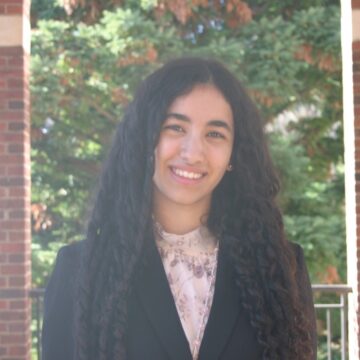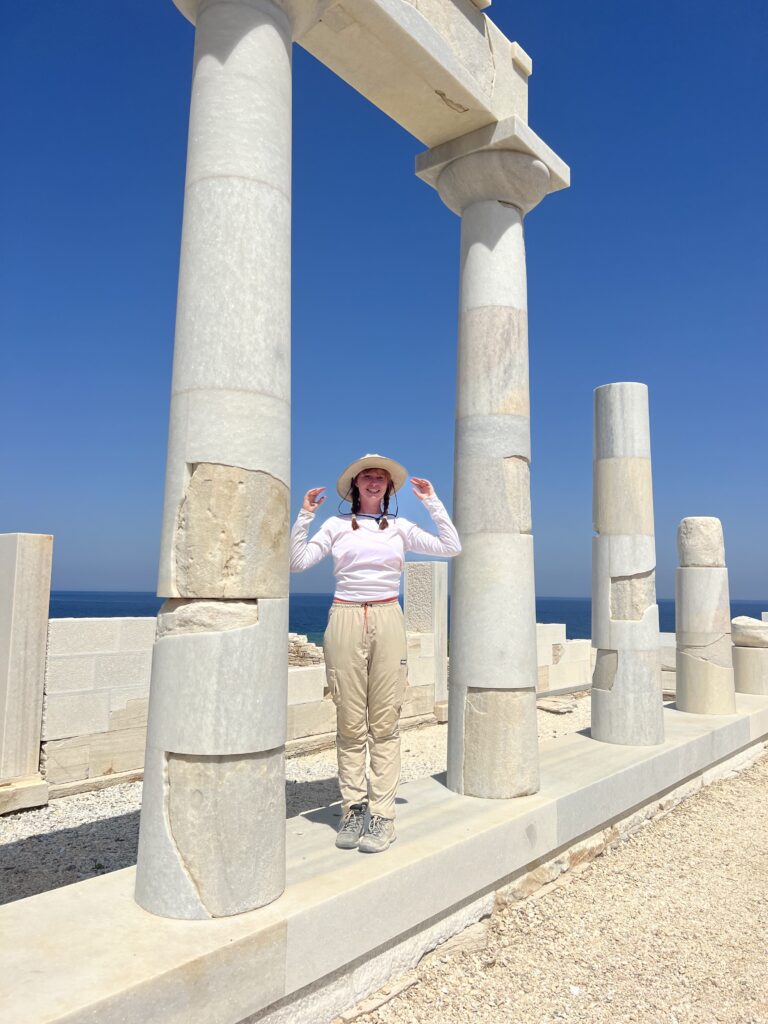
I remember being in first grade when my teacher assigned a “what do you want to be when you grow up” project. An ambitious yet indecisive child, I couldn’t pick just one career path. Instead, I chose three: a pilot (to see the world), a paleontologist (because I wanted to dig up dinosaur bones), and a history teacher (because I wanted to share my knowledge of the past with others). While I am not on track to pursue any of these options, my fascination with the world and its past has never dwindled, and my study abroad experience this summer certainly fulfilled many of my younger self’s dreams.
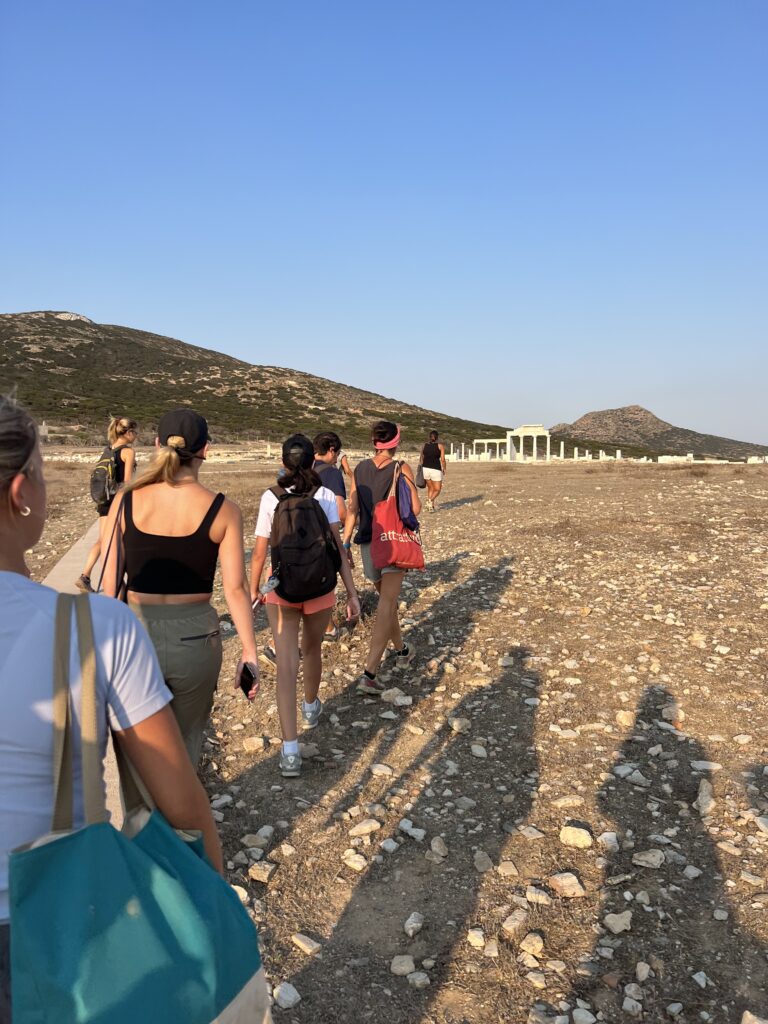
This summer, I took part in an archaeological excavation in Greece through College Year in Athens (CYA). Eighteen other students and I spent three weeks living on the island of Antiparos and ferrying daily to Despotiko, the site of an ancient religious sanctuary dedicated to the god Apollo. Although we weren’t digging for dinosaur bones like my younger self imagined, it was a unique opportunity to go beyond my textbooks as a Classics major to see for myself the things I learn about in class. Following the dig, the group and I spent a week on the island of Paros, where we worked in an archaeological museum cataloguing the finds.
I had always thought archaeology seemed incredible but also impossible. Movies like Indiana Jones make the career path seem not only dangerous but also completely unrealistic. However, after taking an archaeology class at Hopkins and recognizing its importance in the field of classics , I discovered that an excavation might be within reach for me. At a Hopkins Study Abroad Fair, I met an ambassador for CYA who told me about the summer field school. I spoke with my advisors and decided that taking part in an excavation would be a great addition to my study of Classics, so I immediately applied.
In some ways, excavating was just like the movies. Everyone wore cargo pants and safari hats as we worked on a pottery-covered landscape beneath a magnificent, reconstructed, marble temple. We ate traditional Greek snacks during our breaks, which took place in the shade of a rusty, old shipping container with a few wooden slabs and threadbare cloths as the roof. When something exciting was found, everyone crowded around the discovery, ooh-ing and aah-ing and hoping to get to touch it. The brilliant blue of the surrounding Mediterranean Sea was rivalled only by the sky, which was always beautiful and storm cloud-free.

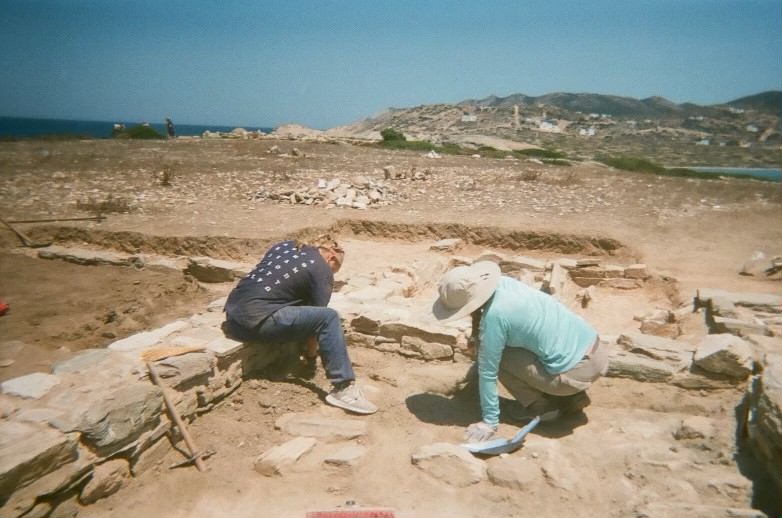
There are some things the movies don’t get right. For every intricately decorated vase, there are hundreds of small pieces of undecorated pottery that don’t give any clues regarding when or where they came from. There is simply too much material to keep everything, so many of the finds are thrown away. The days can be quite grueling. Usually, the temperature is around 90 degrees Fahrenheit, sometimes with little to no breeze, and the practice of digging is very physically demanding. While at times we were in the trenches with small tools and a brush, we spent just as much time pickaxing tough ground, shoveling it up, and hauling it away in heavy wheelbarrows. The weeks of digging went by quickly, though, and I truly miss them.
Most days, we would all jump into the water to cool off after digging while we waited for the ferry to pick us up. Every day, someone volunteered their playlist to be the soundtrack for our work. When someone forgot their water, everyone else would pitch in and share theirs to make sure no one would become dehydrated. I met the most incredible people while excavating, from my fellow CYA participants, to the Greek archaeologists we worked with, to even some tourists (including actor Sacha Baron Cohen, who toured the Despotiko site and took some time to chat with my friends and me about our experience).
Another aspect not as commonly depicted in the media is the museum work that follows an excavation. Excavations can only run for a few weeks each year by governmental law. While this may seem like it limits the findings, it makes sense when you consider how complex the cataloguing process can be. Keeping track of the finds by their layer and location is incredibly important, as this information is necessary to further understand them; without the context and the other artifacts found alongside each discovery, piecing together an accurate chronology becomes impossible. The museum work was also particularly exciting because the other students and I were able to work directly with rare finds, even if they weren’t ones we unearthed ourselves. Additionally, it was rewarding to see things we had found on site in the restoration process as they were cleaned, pieced together, and appeared more like they would have in their prime.
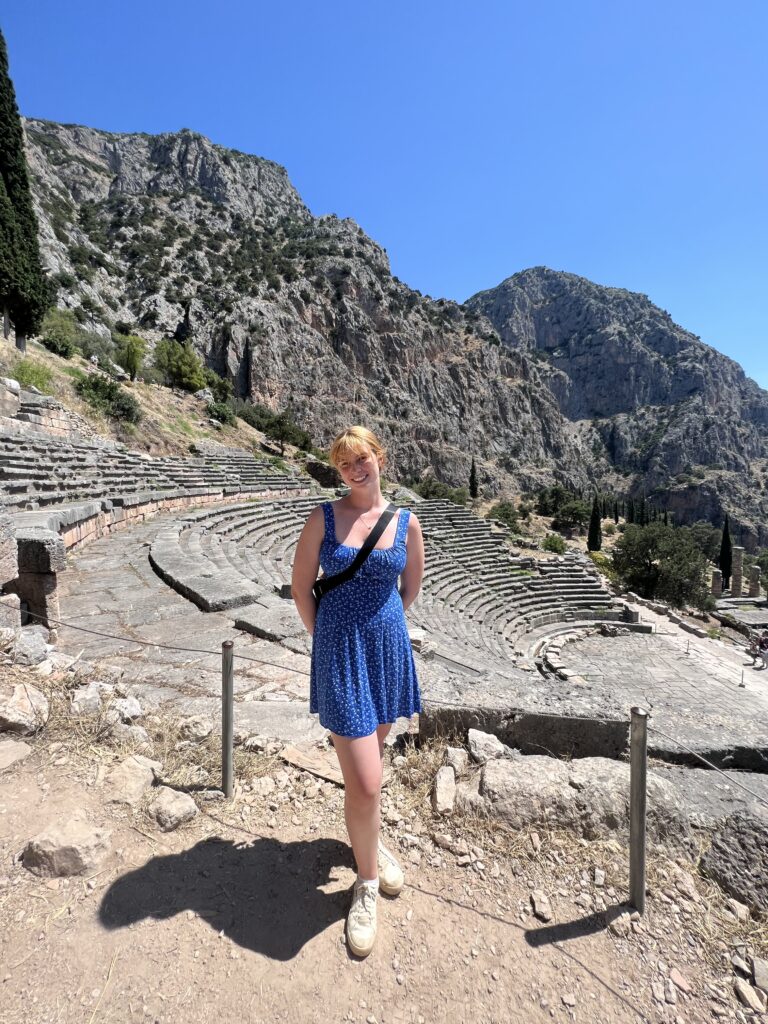
Island hopping is very convenient in Greece, so I took advantage of all my free weekends. From exploring caves on Antiparos, to walking around the ancient city-sanctuary on the island of Delos, to seeing the labyrinth-like Knossos Palace on Crete, to visiting black sand beaches and towns preserved in volcanic ash on Santorini, to exploring museums on Naxos and Paros, I ferried from island to island with ease, seeing sites that I had read about in textbooks and dreamed of visiting for years.
After the program ended, I spent one more week exploring Greece on my own and had the most incredible time. Solo traveling not only empowered me in my independence but also allowed me to do everything I wanted to do while I was in Athens—and trust me, there was a lot I wanted to do. I spent my six days in Athens going to three to four sites or museums each day, waking up early to beat the crowds and staying out until after nightfall, enjoying the safety of the populated and well-lit streets. It was a week of “nerding out” to the fullest extent. I saw theaters where famous tragedies premiered, sanctuaries like Delphi where the renowned oracle doled out her prophecies, and artifacts in museums about which I’ve written papers for class. Everywhere I looked there was ancient history, and I was constantly in awe.


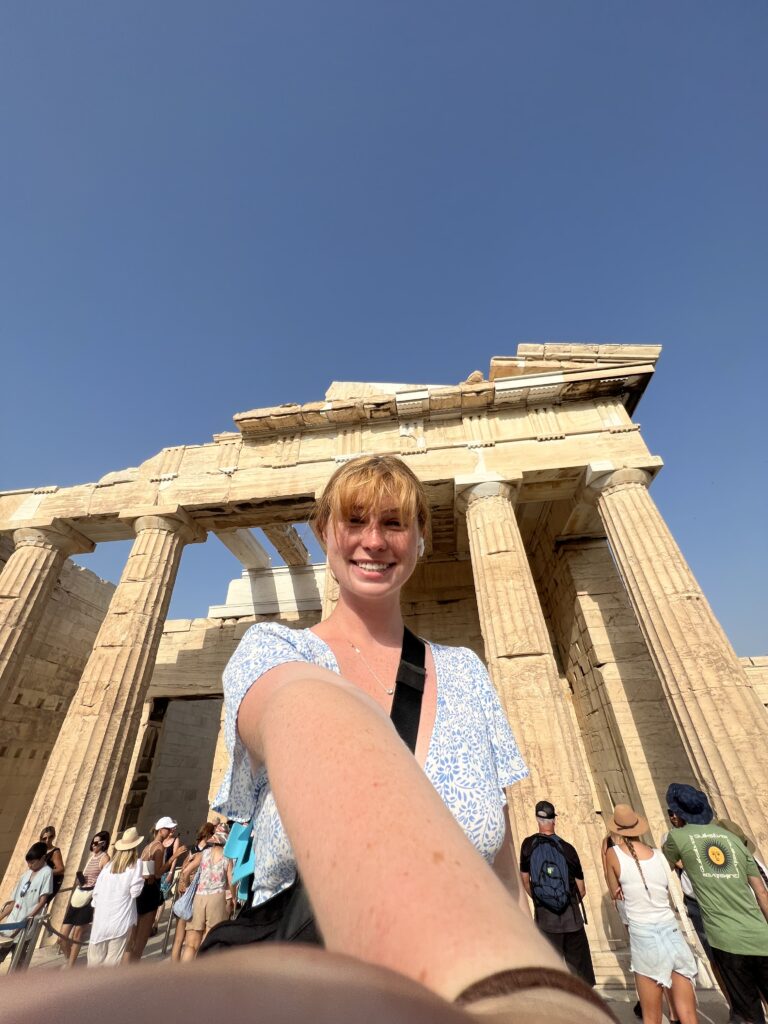
Not to be one of those “study abroad changed my life” kids, but this really was an experience that I will never forget. My field of study is very niche and therefore centralized in specific locations, so to visit one of those places and further contribute to the modern understanding of Greece’s ancient past was beyond impactful on my life. I’ve never felt so small in the universe than when I was unearthing pieces of pottery and processing the fact that someone over 2,000 years ago made these with their hands, yet I’ve also never felt as important as when I was adding to the ancient material that may be studied for generations onward.
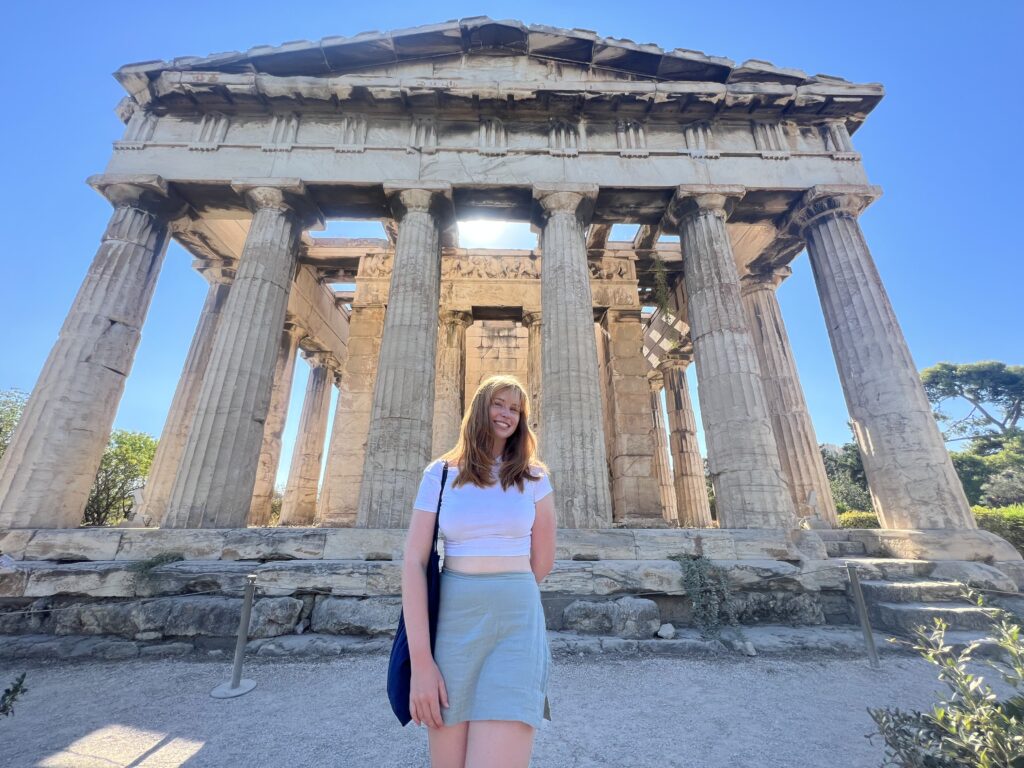
When I was a kid, I wanted to see the world—check!
I wanted to unearth the past—check!
And I wanted to share what I learned, and I believe that’s what I’m doing right now, so—check!
